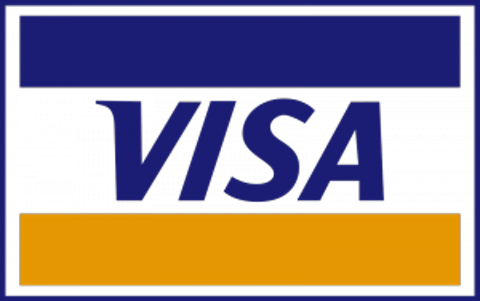Despite the best efforts of titans like Visa Inc (NYSE:V), Google Inc (NASDAQ:GOOG), and communication giants like AT&T Inc. (NYSE:T) and Verizon Communications Inc. (NYSE:VZ), the much-heralded takeover of the payments space by the mobile wallet is no closer to reality.

1. Security fears
Consumers are very concerned about the security of using mobile wallets, and a survey of 1,500 respondents earlier this year shows just how important this issue has become.
A full 70% of those polled said that identity theft is their major worry when it comes to using virtual wallets, followed closely by 60% that feared the theft of their smartphone would result in others having access to their information. Nearly half felt that nothing short of absolute protection against theft and fraud would entice them to use a mobile wallet as a payment option.
This is a reasonable concern. For example, Isis, a mobile wallet offering from T-Mobile, AT&T Inc. (NYSE:T), and Verizon Wireless, uses a removable SIM card to store a customer’s information. Recently, a German security firm has identified SIM cards as being vulnerable to hackers — who could conceivably lift information from a consumer’s phone by prompting the device to respond to a spam message.
2. Options are too limited and confusing
Currently, the mobile wallet space has a mish-mash of players and offerings, one of which is not even available for general use. Google Wallet, which works only with Android phones, has only one carrier, Sprint Nextel Corporation (NYSE:S) that supports its app; not surprisingly, the trio behind Isis block it altogether. Even Sprint Nextel Corporation (NYSE:S) is giving Google Inc (NASDAQ:GOOG) a hard time, and now offers its own version of a mobile wallet to compete with Google Inc (NASDAQ:GOOG)’s product.
Isis, meanwhile, has been in a testing phase since last October and is currently only offered in Austin and Salt Lake City. The backers of the technology have only recently been making noises about a nationwide Isis debut this year, but no date has been set.
Only Visa Inc (NYSE:V)’s V.me digital wallet seems to be making inroads, albeit slowly. Despite having partnered with 90 financial partners, Visa Inc (NYSE:V)’s CEO noted on its latest earnings call that convincing merchants to sign on has been tough. Currently, Visa Inc (NYSE:V) has 253 merchants on board, but it acknowledges that many don’t see an advantage to signing up.
3. Mobile wallets are no more convenient than credit and debit cards
This is a biggie, and it may be toughest nut to crack for the purveyors of this technology. Using a credit or debit card for purchases is extremely convenient, for both consumers and merchants. For customers, almost universal acceptance of plastic makes the decision to forgo virtual wallets a no-brainer; for merchants, it means not having to invest in new point-of-sale terminals. As one analyst noted in a recent article in The New York Times, the technology is “trying to solve a problem that doesn’t exist.”
To succeed, one company must dominate
In my opinion, the current throng of players will need to be narrowed down to just one if this technology is ever to experience widespread adoption. As it stands now, it’s simply too confusing for both consumers and merchants — particularly when the current payment options work so well.
My pick for the job would be Visa Inc (NYSE:V), the only company that seems to have a good handle on what it takes to get the necessary parties on board. Once that’s settled, the next step will be to figure out how to squeeze that pesky driver’s license into a virtual wallet.
The article 3 Good Reasons Mobile Wallets Aren’t Catching On originally appeared on Fool.com and is written by Amanda Alix.
Fool contributor Amanda Alix has no position in any stocks mentioned. The Motley Fool recommends Google and Visa. The Motley Fool owns shares of Google.
Copyright © 1995 – 2013 The Motley Fool, LLC. All rights reserved. The Motley Fool has a disclosure policy.





